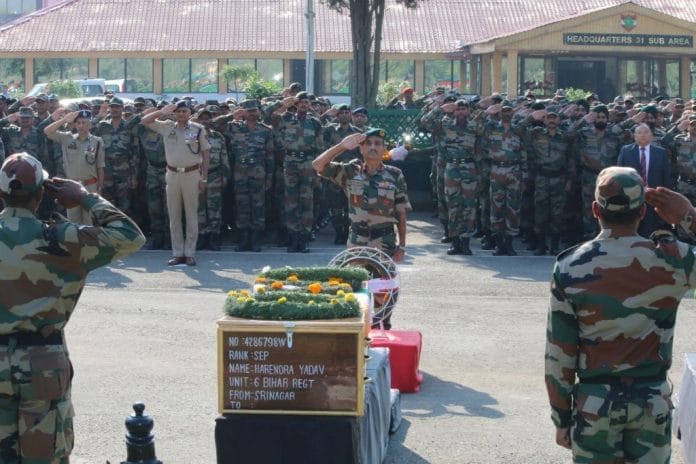There are no new lessons to be learnt from the Uri attack, it is now a question of implementation and resources being allocated.
Anniversaries of battle honours are occasions for celebration in the Army. However, days marking reverses are occasions for introspection and stock-taking. And 18 September 2016 was one of those reverses.
Four Pakistani terrorists infiltrated 6 km into our side of the Line of Control (LoC) and struck at a carefully selected objective, the headquarters of one of India’s iconic formations, the 12th Infantry Brigade. It’s a formation synonymous with India’s domination of the LoC, which in Uri sector has always been complete. When its defence was breached and 20 of its soldiers killed, it was a telling blow to the Army’s prestige. I have had the honour of commanding this formation 14 years ago, and shared the dismay of the ignominy.
Immediately after the setback at Uri, I wrote about the dilemma of the LoC-deployed commanders who ensure that the maximum manpower and surveillance equipment is deployed at the LoC to prevent infiltration and breaches. Yet, counter-infiltration at the LoC is not a domain of operations where anyone ever guarantees 100 per cent success. It leaves them hardly any manpower to effectively secure their bases.
The Army was quick to admit that there had been a failure and the responsibility fell on the shoulders of the brigade commander. Have the lessons from failure been adequately learnt?
There are actually no new lessons to learn because every lesson is already well-known. It is a question of implementation and resources. There can never be enough soldiers to execute both tasks – counter infiltration and base security. That is the challenge in military operations — the ability to comprehend priority, backing that with resources needed and most importantly, taking risk.
There are no fail-proof lessons here because some day the adversary outsmarted you. It is not as if brigade commanders will now ensure that maximum manpower and technology goes into the security of their bases; they will still continue taking the risk and deploy the maximum manpower at the LoC.
When the Chief of Staff of 15 Corps visited me at Uri in 2004, he found that mine was one of the most threatened bases with insufficient resources for security. We agreed that there was a need for a security wall among other things, because single strand wire fences cannot hold back determined terrorists.
In subsequent years, I held positions of higher responsibility, but I could never get the system to prioritize a security wall for Uri. I am sure there is still no measure afoot to give it that wall because resources are scarce and threats multiple. In a military operational environment, resources can never match threats.
The lesson I take home from Uri is that there must be no room for tactical mindsets. For long, the established pattern of militancy was such that Uri and the Jhelum Valley were areas of only transit militancy and infiltration. Thus, the threat to bases was perceived to be low. It changed after the attack on the gun position near Mohra in Dec 2015. That should have triggered military minds, but a one-off event is rarely seen as a pattern.
After the Pathankot attack, came Uri and then Nagrota. The attacks initiated the examination of resources and means for security of establishments by Lt Gen Philip Campose (Retd). A comprehensive report was prepared, but its effectiveness now lies in implementation. Clearly the intent cannot be the creation of fortresses everywhere giving rise to what is called a ‘fortress mentality’.
The government has done well in that it has delegated certain powers for creation of assets for security at prioritised locations. This is a work in progress, but it must be passionately followed up.
The public needs to remain confident that its army will continue displaying professionalism and valor of the highest order. And that an 18 September-like incident makes no difference to its capability to defend India and secure its interests.







While the Army will continue displaying professionalism and valour, the Country must not starve the Army of necessary wherewithal to protect the peoples of the Country and themselves at the same time. To my mind, defending the integrity of the Country cannot be weighed against availability of resources. The resources exist in the Country, the implementation of essential projects is lax because of the slow bureaucratic machinery, and antiquated systems.